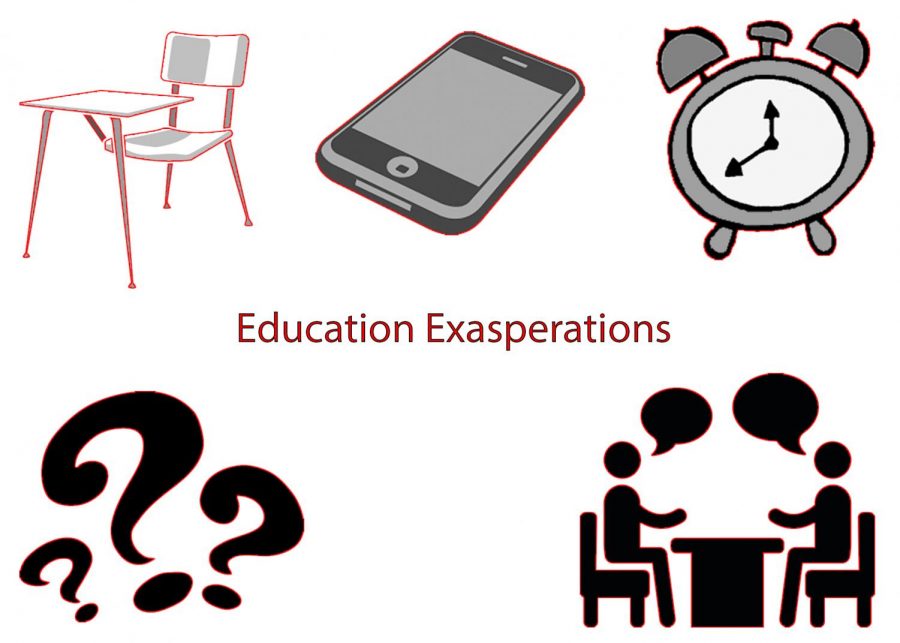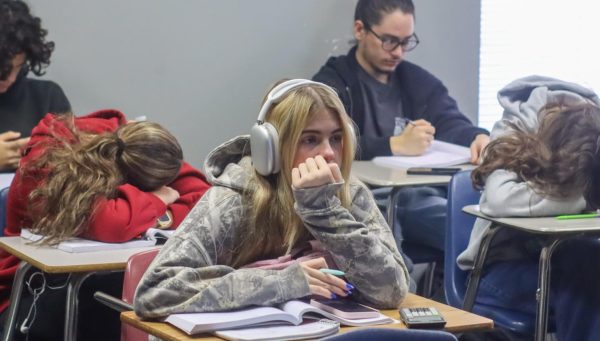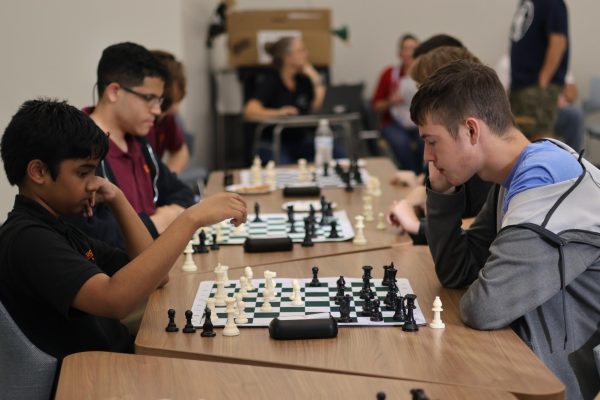Education Exasperations
Every afternoon, when the final bell rings, students and teachers race home, often to complain about one another to anyone who will listen. Teachers air their grievances about students while students complain that teachers will never truly understand their plight. It seems like for every positive classroom interaction, there is at least a little open hatred.
In the spirit of cooperation and in preparation for a new and hopefully more positive school year, here are a few of the most common pet peeves of both students and teachers:
Cell Phones
Cell phone usage is a touching point for both students and teachers. While teachers struggle to pry student attention away from their screens, students struggle in vain to understand strict rulings and policies that seems like they are out to get them. For some students, harsh rulings can seem oppressive and condescending.
“I think the relationship between students and teachers should be like teamwork, and it’s more like one dictating the other,” senior Ren Downs said.
Most teachers agree that cell phones use in class is disrespectful, and it can be one of the most annoying and most difficult to break of student habits. To avoid their teacher’s wrath, all a student needs to do is put away the cell phone.
“Playing video games or taking selfies during lectures show a complete lack of respect for what I have to say and share with students,” science teacher Romina Janotti said.
Attendance
A student does not need to be in class the teacher relationship to turn sour. In fact, students not showing up to class can be one of the most infuriating experiences for teachers and students alike.
For teachers, a student not coming to class can require after school time to administer missed assignments or reteach assignments the student missed. Harsh teacher make-up work policies can make this transition difficult for the student as well.
“I think teachers should give students the benefit of the doubt,” senior Alyssa Hall said. “Especially if they have a school excused absence.”
Questions
Student questions can be a great addition to learning, but they can also cause problems. Disrespectful or disruptive questions can throw students off the track of learning, and teachers often respond negatively to questions unrelated to the subject matter or ones answered earlier in class.
“Repeating the exact same answer that I just answered because the student was not paying attention wastes valuable class time,” math teacher Lois Arp said.
However, many students find these hostile responses to questions both offputting and discouraging. For students trying to learn, being told off for not having an answer can be not only infuriating, but also disheartening.
“Even if a kid is asking a dumb question, don’t shame them for it,” Downs said. “They are trying to learn, and maybe teachers should try to explain.”
Time
Both students and teachers dedicate massive amounts of time to school work and class preparation. As such, respecting each other’s time can go a long way toward improving relations.
Students can put this simple plan into action by participating in classroom activities and discussions that teachers have worked hard to put together.
“I spend a lot of personal time outside of school trying to come up with fun, cool activities to get my students interested in my subject.,” Jannotti said. “When students choose not to engage in these activities it shows a lack of respect for my time.”
Communication
With hundreds of students and dozens of teachers it may be impossible to avoid the individual pet peeves of every student and teacher in the school. At the end of the day, communication between the student and teacher is vital to maintaining a healthy, positive and reciprocal relationship between students and teachers.
“I don’t want to write students up, I’d rather just address it with conversation and learn together,” math teacher Gian Tucciarone said.
Your donation will support the student journalists of Hagerty High School. Your contribution helps us publish six issues of the BluePrint and cover our annual website hosting costs. Thank you so much!








